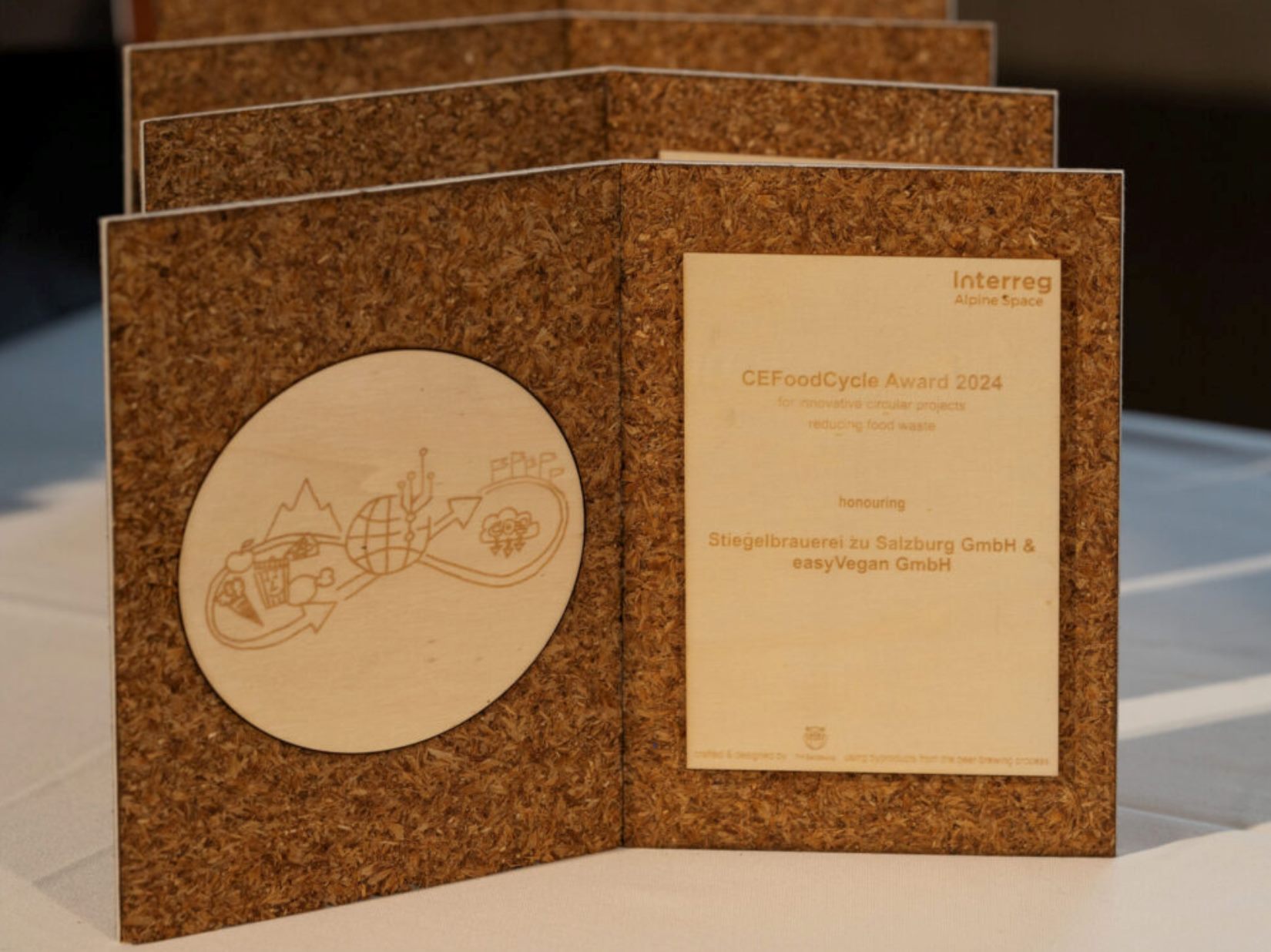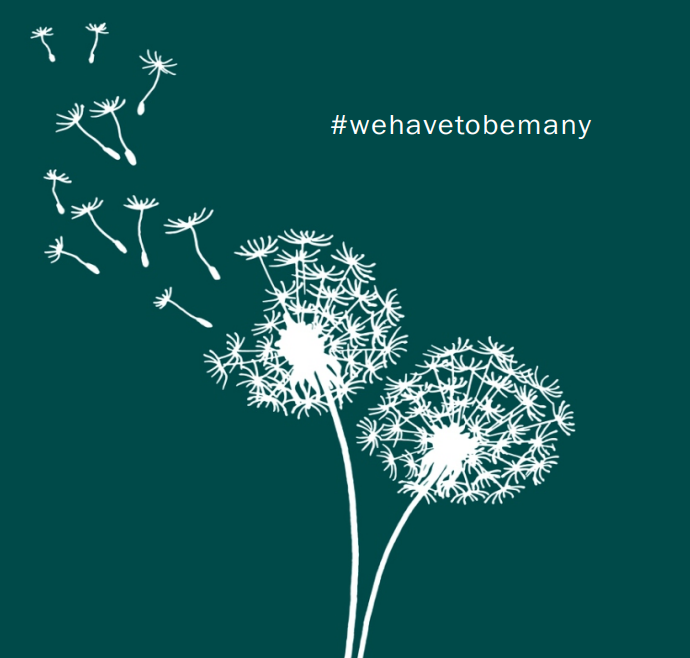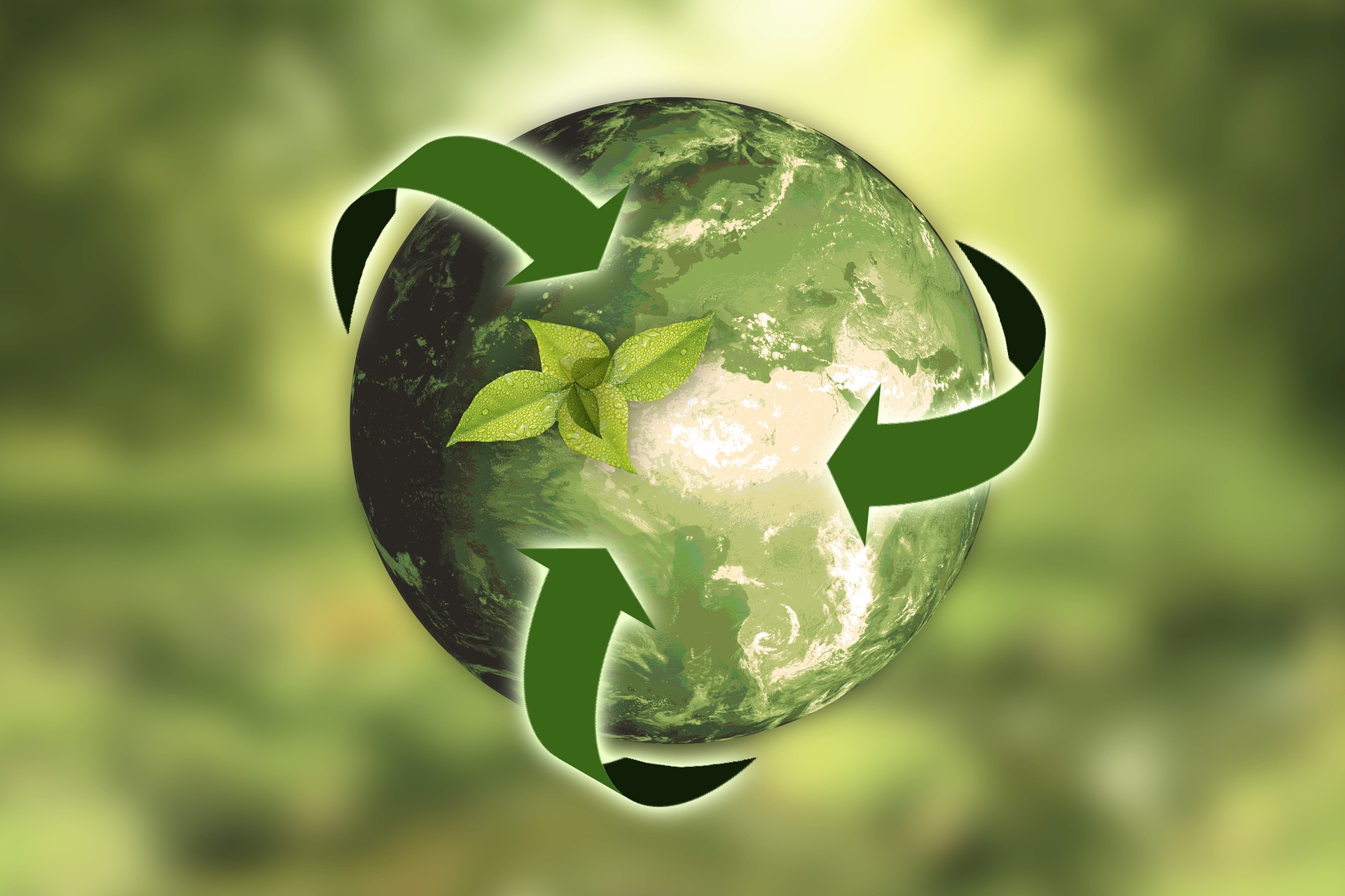AKTUELLES
-

Foto © IDM/Moling „CEFoodCycle“ Award verliehen
Kreislaufwirtschaft gegen Lebensmittelverschwendung
Mehr als eine Milliarde Tonnen Lebensmittel landen weltweit pro Jahr auf dem Müll, so rechnet eine Studie der Vereinten Nationen vor. Das ist fast ein Fünftel der globalen Produktion. Hier setzt das EU-Projekt Interreg Alpine Space CEFoodCycle unter der Leitung der FH Salzburg an, für die Region Salzburg ist die Paris Lodron Universität Salzburg (Fachbereich BWL / Marketing) ebenfalls daran beteiligt. Das internationale Forschungsprojekt setzt sich für Maßnahmen gegen Lebensmittelverschwendung ein. Im Rahmen des Projekts wurde der CEFoodCycle Award an Unternehmen verliehen, die neue Ideen in der Lebensmittelkreislaufwirtschaft verfolgen.
„Das internationale und interdisziplinäre Projekt CEFoodCycle zielt darauf ab, Stakeholder im Lebensmittelsektor miteinander zu vernetzen und am Weg in Richtung Kreislaufwirtschaft zu unterstützen. Aus diesem Grund haben wir den CEFoodCycle Award ins Leben gerufen, um Leuchtturmprojekte im Alpenraum einer breiten Öffentlichkeit zu zeigen,“ erklärt Eva Lienbacher, die das gesamte Projekt von der FH Salzburg, Department Business & Tourism, aus leitet. Teilnehmen am Award konnten Unternehmen, Start-ups und Initiativen, die ein Projekt im Lebensmittelsektor zur Reduzierung von Lebensmittelabfällen planen, oder es sogar schon umgesetzt haben. Insgesamt wurden 35 Projekte aus den fünf beteiligten Partnerländern (Österreich, Deutschland, Italien, Slowenien und Frankreich) eingereicht. Aus jedem Land wurde ein Gewinner ermittelt, die feierliche Preisverleihung fand am 22. Mai 2024 in der Hofburg in Brixen, Südtirol statt.
Christine Vallaster von der Paris Lodron Universität Salzburg erklärt: „Zusammen mit unseren Partnern etablieren wir sogenannte „Circular Food Hubs“ im Raum Salzburg – Bayern. Bei CEFoodCycle werden die Bemühungen um Kreislaufwirtschaft im Lebensmittelsektor gebündelt. Potenziale werden identifiziert, um die besten Ansätze zur Reduktion zu finden und nachhaltige Praktiken im Lebensmittelsektor zu fördern. Für unsere Facheinheit Marketing ist die Kreislaufwirtschaft eines unserer Kernthemen, mit Fragestellungen, wie sich das Marketing in seinem Verständnis im Kontext der Ökologisierung verändert. Daher ist CEFoodCycle ein äußerst wichtiges Projekt für uns.“
Die Preisträger des CEFoodCycle Awards sind: — Österreich und Deutschland, Circular Food Hub Salzburg-Bayern: Gewinner ist das Unternehmen Stiegl, das in Zusammenarbeit mit easyVEGAN Fleischersatzprodukte aus naturbelassenem Treber herstellt. — Italien, Circular Food Hub Alto Adige: Garum-Projekt. Das Start-up stellt durch Fermentation von Nebenprodukten eine nachhaltige, gesunde Würzzutat für Gastronomie und Industrie her. — Italien, Circular Food Hub Piemonte: Das Horizont-2020-Projekt FUSILLI zielt darauf ab, das urbane Lebensmittelsystem durch die Implementierung von Innovative Living Labs zu verändern. — Slowenien, Circular Food Hub Gorenjska: Preisträger Souvenir L.t.d. House Linhart setzt sich im Bereich Tourismus dafür ein, dass alle Zutaten verbraucht und kompostiert werden. — Frankreich, Circular Food Hub Alpes-Maritimes: Gewinner ist das Startup Tripluch, eine digitale Plattform zur Förderung der Wiederverwertung organischer Abfälle.
-

Why do ambiguities in a story bother some people and not others?
How do such individual differences affect attitudes toward the brands featured in story ads?
Matthias Glaser of University of Salzburg and his co-authors Hans Baumgartner of Penn State University and Yung Kyun Choi of Dongguk University investigated the underlying psychological processes.
Narrative ads tell stories to communicate with consumers; the persuasive power of narrative ads depends on whether they succeed in transporting viewers into their story world. Previous research has shown that subjective comprehension promotes transportation, which in turn improves brand attitudes, and that a strong link between the product and the story enhances subjective comprehension. We test this extended transportation-imagery model in two studies conducted in a Western European and an East Asian country and provide evidence for its (cross-cultural) generalizability. We also propose that individual differences in need for closure (people’s tolerance for ambiguity and desire for definitive answers) moderate the relationship between subjective comprehension and transportation and, as a result, influence the extent to which a strong product-story link increases product attitudes via subjective comprehension and transportation. Support for the predicted moderator effect is obtained primarily in the Western European country.
Click the link below to view a video summary of this research.
In English: https://youtu.be/mYiHkidYPxA
In German: https://youtu.be/C5c-cG1kjF4
In French: https://youtu.be/qkHA7sZuGBsLink to article: https://www.journals.uchicago.edu/doi/epdf/10.1086/727833
(Image credit: AI generated image using Midjourney by Matthias Glaser)
-

Video – Antrittsvorlesung – Prof.in Vallaster
Unternehmen und Konsument*innen im Fokus der Kreislaufwirtschaft: It takes „Two to Tango“
Am 14.03.2024 fand um 18.00 Uhr in der Bibliotheksaula die Antrittsvorlesung von Univ.-Prof.in Christine Vallaster mit dem Titel Unternehmen und Konsument*innen im Fokus der Kreislaufwirtschaft: It takes „Two to Tango“ statt. Ein Video der Antrittsvorlesung wurde von Mag. Karl Rothauer für UniTV, dem Salzburger Unifernsehen, erstellt und ist unter UniTV_Antittsvorlesung_Vallaster abrufbar.
(Bildnachweis: iStock.com/Anastasiia Iakusheva)
-

Zero Waste – führt uns die Kreislaufwirtschaft in
eine grünere Welt und wenn ja, wie?Vortrag zum Thema Kreislaufwirtschaft in der Biosphärenregion BGL
Am 29. Februar 2024 hielt Cornelia Huis, Doktorandin von Frau Prof. Vallaster, einen Vortrag in der Verwaltungsstelle der Biosphärenregion BGL. Vor etwa 15 Mitarbeiter*innen widmete sie sich dem Thema „Zero Waste – führt uns die Kreislaufwirtschaft in eine grünere Welt und wenn ja, wie?“.
Der Fokus des Vortrags lag auf der Bedeutung von nachhaltigem Konsum und der effizienten Nutzung von Ressourcen. Mithilfe konkreter Beispiele von Unternehmen, die auf Kreislaufwirtschaft setzen, wurden die Chancen und Herausforderungen dieses nachhaltigen Ansatzes vermittelt.
Die Veranstaltung bot eine Plattform für anregende Diskussionen, in denen etwaige Erfahrungen, Gedanken und Ideen zu den Möglichkeiten, die eine Kreislaufwirtschaft bietet, ausgetauscht wurden. Besonders intensiv wurden Fragen zur praktischen Umsetzung und den potenziellen Vorteilen dieses Ansatzes erörtert.
Nähere Details zum Vortrag finden Sie hier!
_____________________________________________________________________________________________________________________
Bildnachweis: Pixabay_anncapictures




